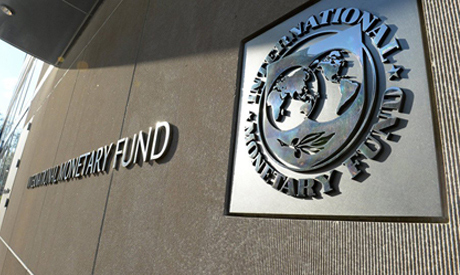
File Photo of the International Monetary Fund. (Photo: Reuters)
The International Monetary Fund (IMF) Executive Board has approved, for the second time, a temporary increase in annual access limits to financial support as a result of the severe impacts of Covid-19 crisis.
Under the approval, increases will be applied in the annual access limits in the General Resources Account (GRA) from 145 to 245 percent of quota, and under the Poverty Reduction and Growth Trust (PRGT) from 100 percent to 150 percent of quota, on a temporary basis through 6 April 2020, in addition to a temporary increase in the exceptional annual access limit under the PRGT by 50 percent of quota to 183.33 percent of quota for the same period.
As of 13 July 2020, 72 countries have already received financial assistance from the IMF’s emergency financing instruments since the onset of the pandemic, facilitated by the doubling of annual access limits under these facilities, approved by the Executive Board 6 April, according to the IMF.
The Executive Board also has approved the temporary suspension of the limit on the number of disbursements under the Rapid Credit Facility (RCF) through 6 April 2021.
Q&A on the temporary modification to the Fund's Annual Access Limits
Why has the IMF Executive Board decided to raise the limits on annual Access to Fund resources on a temporary basis? What does this mean?
Access to Fund resources is the amount of financing that a member country requests from the IMF. There are limits to how high that amount can be on an annual basis: requests for amounts in excess of these access limits are viewed as “exceptional” and are subjected to tighter scrutiny in terms of strength of policy, sustainability of debt levels, and assessed capacity to repay.
The severe impact of the Covid-19 pandemic on global economic conditions has resulted in an unprecedented number of member countries seeking financial support from the IMF. As of 13 July 2020, 72 countries have already received financial assistance from the IMF’s emergency financing instruments since the onset of the pandemic, facilitated by the doubling of the hard limits on annual access to these facilities approved by the Executive Board 6 April. However, many of the countries that have received financial support from the IMF have reached, or are approaching, the relevant limits for annual access.
The decision to temporarily raise the limits on annual Access to Fund resources will allow these countries to receive higher levels of financing within the current year while remaining within the normal access limits.
What happens if the Exceptional Access framework is triggered?
The Exceptional Access (EA) framework serves a prudential function. When a member country faces an exceptionally large balance of payments need, the IMF can lend beyond the normal access limits only under heightened scrutiny of the ability of the borrowing member country to deliver a successful economic programme and later repay the Fund. In other words, the bar is higher in terms of strength of policy, sustainability of debt levels, and assessed capacity to repay.
Given the unique circumstances created by the pandemic, the large financing needs expected over the first year of the pandemic are likely to reflect the truly exceptional global conjuncture. The current annual access limits could constrain a timely response by the IMF to financing requests, by triggering additional requirements where country-specific factors are not the main driver of requests for high annual access. The Executive Board therefore approved a temporary increase of the level of annual access at which the extra scrutiny under the EA framework is required. The cumulative access limits, which trigger the EA framework based on the Fund’s total credit exposure to a member country, remain unchanged.
Given Covid-19 and the exceptional needs, why have you not increased the cumulative access limits? Are you planning to?
Cumulative access is the total amount of credit outstanding to the IMF: IMF programme requests where cumulative access is expected, at any point, to exceed a specified limit trigger implementation of the EA framework.
Raising the limits on total credit exposure to the IMF – the amount of country risk that the IMF is willing to take under normal circumstances – has wider consequences for IMF's risk management strategy. A decision to raise these limits would need to be taken up in the context of broader discussions of the IMF's level of risk tolerance — which the Executive Board is expected to consider in due course.
Why is there a limit on the number of disbursements under the Rapid Credit Facility (RCF) within a 12-month period?
The limit was introduced to discourage repeated use of emergency financing in response to distinct shocks within a short period, reflecting the view that the country would be better served by seeking a regular IMF-supported programme in such circumstances.
In current circumstances, with the limits on annual access to the RCF having been doubled and the pandemic having created financing needs over an extended period, the “two-disbursement rule” limits the flexibility with which access to the RCF can be used over the course of the pandemic. The Executive Board therefore approved a temporary suspension of this rule.
Short link: